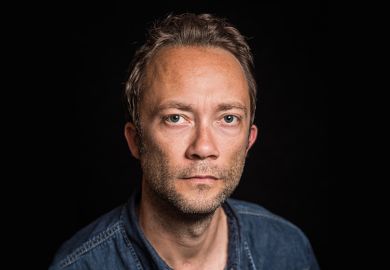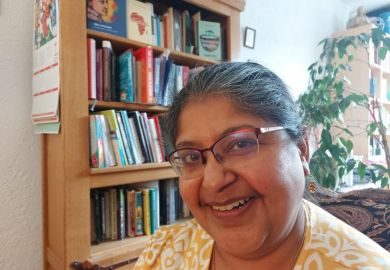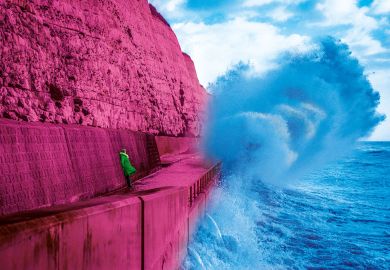When Ralph Waldo Emerson declared in the 19th century that America was a "poem" and would not "wait long for its metres" he could have hardly begun to sense the sheer volume, diversity and extraordinary achievement of an American poetry which, by any account, must by now be acknowledged as the leading contemporary tradition of poetry written in English. But then nor could he have imagined that some l50 years later the word "poem" would be subsumed into a history of those metres he so predicted. Thus the irony of Emerson's legacy in The Columbia History of American Poetry - inflatedly described by its publishers as "this generation's definitive view of the development of this distinctive art form".
Despite such claims The Columbia History of American Poetry sits uneasily inside its title. It is not a history of American poetry so much as a collection of some 30 individual essays which seek, but ultimately fail, to cover the range of American poetry from its beginnings to its still developing energies in the l990s.
In one sense this is a history undermined by a fudged sense of methodology and critical perspectives. It insists (as it resists) a canon of major writers and texts and falls midway between an approbation of what has been and the questioning of what has been approved. Thus its (necessary) revisions and re-alignments, its attempts to displace the sense of a settled hierarchy of poets, and its acknowledgement of a larger context for the poem which allows for a more complex, diffuse, and paradoxical series of linguistic and cultural codes (especially in relation to black, ethnic and women's poetry). Inevitably, and in the face of such a daunting task, the essays do not so much offer the reader an historical overview as a foray into the diffuse range of American poetry and poetics - an aspect underscored by the fact that of its almost 900 pages, some 80 constitute an index of the names of poets and the titles of poems.
And yet despite its range of reference, there are some strange gaps and absences. It seems odd, for example, that while W. H. Auden is accorded a separate essay as "American Auden" (following his arrival in the United States in l939), other key figures merit hardly a mention. In an otherwise laudable introduction, the editor virtually dispenses with the likes of e e cummings, Yvor Winters, Conrad Aitken and J. V. Cunningham as poets "difficult" to place - part of the task, presumably, that any history should address. While such figures are virtually excluded, so others are pushed to the margins. Charles Olson's (still magnificent) Maximus Poems, like Louis Zukofsky's (extraordinary) A, merit barely half a page.
Frank O'Hara, surely a poet basic to any sense of post-second world war American literature, achieves only a passing notice. Likewise, one looks in vain for any acknowledgement of Charles Reznikoff, Thomas Merton, John Wieners and Charles Bukowski. In an earlier context poets such as Henry Timrod, William Vaughan Moody, Frederick Henry Tuckerman and Philip Freneau are all but absent. They may be very much secondary to Whitman and Dickinson, but they surely deserve their appropriate placing in any history of the American poem.
But this is to detract from the obvious merits which many of the essays, on an individual basis, reveal. While one hesitates to isolate particular essays from so many chapters, several suggest themselves as examples of the text at its best. Helen Vendler offers an excellent and dense essay on Wallace Stevens's "lyrical" poems. John McWilliams offers a scholarly and detailed consideration of the 19th-century American "epic" poem, allowing it to hover between its classic beginnings and the looser perspectives of its 20th-century alternatives. Carolivia Herron is incisive on "Early African American Poetry" - an essay amply expanded upon by Arnold Rampersad in his essay on the Harlem Renaissance and William W. Cook in his essay on the Black Arts Poets.
Of the more general essays Margaret Dickie's "Women Poets and the Emergence of Modernism" deserves a special mention, offering a convincing and needful argument for the importance of such figures as Gertrude Stein, Marianne Moore and H. D. (Hilda Doolittle) in the development of a Modern American poetry still overly dominated by the male presence of T. S. Eliot, Ezra Pound and William Carlos Williams.
While such essays reflect the volume at its best, some of the essays on the obvious figures (eg Whitman and Poe) are perhaps too constrained in their approach and appraisal. Despite this, the range and diversity of the American poetic tradition is reflected in an equal range and diversity of critical approach.
One notes gaps (the little magazine, expatriation, etc), but then no single volume could cover all the ground claimed by such a breadth of achievement. In this sense The Columbia History of American Poetry is not so much a map as a mosaic of reading. Approached in this light it is an admirable achievement given what, in the end, is an impossible task. Emerson, like so many of his contemporaries, has a lot to answer for.
Graham Clarke is reader in literary and image studies, University of Kent.
The Columbia History of American Poetry
Editor - Jay Parini
ISBN - 0 23l 07836 6
Publisher - Columbia University Press
Price - £45.00
Pages - 894
Register to continue
Why register?
- Registration is free and only takes a moment
- Once registered, you can read 3 articles a month
- Sign up for our newsletter
Subscribe
Or subscribe for unlimited access to:
- Unlimited access to news, views, insights & reviews
- Digital editions
- Digital access to THE’s university and college rankings analysis
Already registered or a current subscriber? Login



